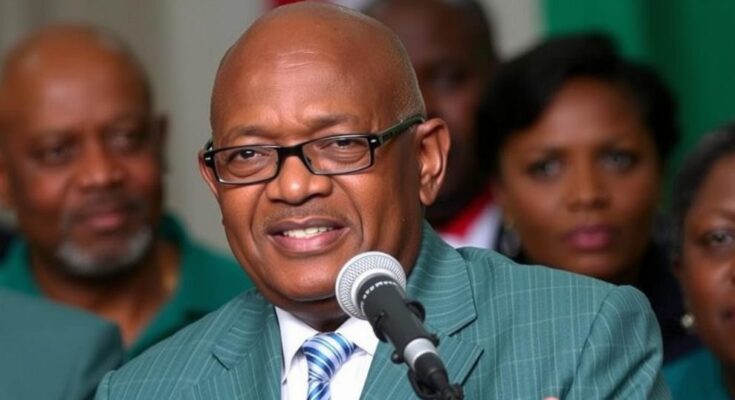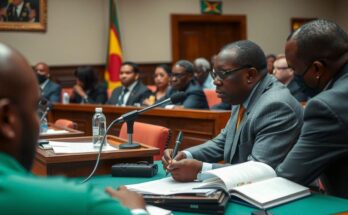Mozambique’s Constitutional Council upheld Frelimo’s election victory, leading to protests amid claims of electoral fraud. Over 130 people have died in unrest, prompting a decline in economic forecasts for 2024. Opposition parties have rejected the election results, alleging suppression of the people’s will.
Mozambique’s highest court has affirmed the ruling party Frelimo’s victory in the recent election held in October, a decision met with widespread opposition protests alleging electoral fraud. The Constitutional Council, which supervises the electoral procedure, announced that Frelimo’s Daniel Chapo was elected president, securing approximately 65% of the votes, a substantial drop from the electoral commission’s reported figure of over 70%. The council’s ruling, perceived as contentious, reignited tensions in Mozambique, where protests have escalated resulting in over 130 fatalities during clashes with law enforcement.
Frelimo has remained at the helm of Mozambique since 1975, yet has faced ongoing allegations of vote rigging since it allowed elections in 1994. During the announcement in Maputo, a heavy police presence prompted the streets to be mostly deserted, although footage from local media indicated that protests erupted shortly after in the northern city of Nacala-Porto and within the capital itself. Opposition representatives, including Venancio Mondlane’s party, have rejected the court’s findings, voicing concerns over the integrity of the electoral process and the apparent suppression of the people’s will.
The post-election turmoil has hindered the operations of international businesses, including mining firms, and affected the nation’s connectivity with South Africa due to temporary border closures. Following the unrest, the International Monetary Fund revised its economic growth forecast for Mozambique down to below 4.3% for 2024, attributing potential setbacks to the sociopolitical instability and recent natural disasters.
The background of this issue lies in Mozambique’s political landscape, where the ruling party Frelimo has been in control since the country’s independence from Portugal in 1975. Electoral integrity has consistently been called into question since Frelimo introduced multiparty elections in 1994. The recent elections and subsequent ruling by the Constitutional Council have intensified opposition claims of electoral misconduct, leading to significant civil unrest and fatalities.
In conclusion, the confirmation of Frelimo’s election victory by Mozambique’s top court has not only escalated protests but also magnified pre-existing tensions regarding electoral integrity. The opposition’s rejection of the court’s ruling highlights ongoing disputes over the democratic process in Mozambique, while the unrest poses economic risks, thereby necessitating attention from both national and international communities.
Original Source: www.cnn.com




